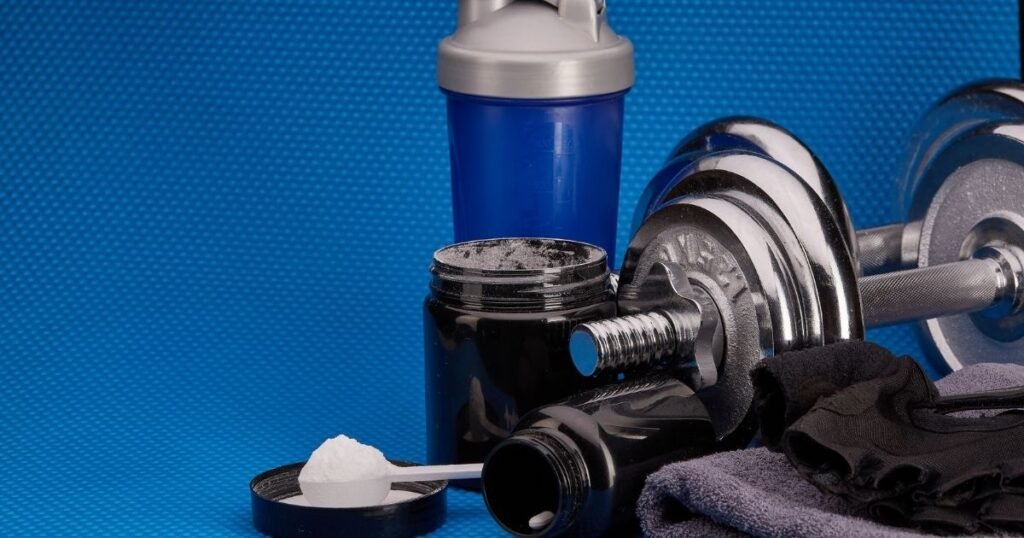Sports nutrition utilizes research-supported nutritional strategies to enhance athletic performance, training, and recovery. By adopting science-based best practices around hydration, nutrients, and properly timed eating, athletes can gain a true performance edge.
Foundational Principles of Sports Nutrition
Sports nutrition follows core principles to support training demands:
- Proper Hydration – Maintaining optimal hydration before, during, and after training is vital. Dehydration negatively impacts endurance, strength, and cognitive abilities.
- Fueling for Workouts – Consuming balanced meals with protein, carbs, and healthy fats provides energy for tough training. Carbs replenish glycogen stores while protein aids muscle building.
- Refueling Post-Workout – Consuming carbs and protein within 60 minutes after training helps maximize muscle growth and glycogen restoration.
- Strategic Supplements – Legal supplements like creatine or beta-alanine can provide performance benefits by enhancing strength, endurance or recovery.
- Managing Intake Around Competitions – Carb-loading, staying hydrated, and strategically consuming easily digested foods prevents hunger and maximizes energy on game days.
Properly executing these core sports nutrition principles yields tangible improvements.

Key Nutrients for Athletes
Certain nutrients play essential roles in powering athletic performance:
- Carbohydrates – The primary fuel source for high-intensity activity. Maintaining adequate glycogen stores through carbs is crucial.
- Protein – Used for muscle repair and growth. Athletes need higher protein intake for recovery and strength building.
- Healthy Fats – Provide energy and support hormone regulation. Omega-3s also aid recovery and reduce inflammation.
- Water – Essential for temperature regulation, joint lubrication, delivering nutrients, and preventing cramping. Dehydration severely reduces performance.
- Micronutrients – Vitamins and minerals aid energy metabolism and protect against deficiencies that undermine training. Antioxidants also promote recovery.
A balanced eating plan provides optimal nutrient combinations for athletic development.
Hydration Guidelines
Maintaining fluid balance is imperative for athletes. Dehydration of just 2% of body weight harms performance. Key hydration strategies include:
- Sipping fluids consistently instead of guzzling large amounts sporadically
- Customizing water and electrolyte intake to match sweat rate and duration of activity
- Weighing before and after training to assess fluid losses and needs
- Urine color check – pale yellow indicates proper hydration
- Limiting dehydrating fluids like coffee and alcohol around activities
- Drinking approximately 16-20 ounces of fluid 2-3 hours before competition
Proper hydration allows athletes to reap the full benefits of their fitness regimen.
Nutrient Timing
Nutrient timing before, during, and after training is optimized using these strategies:
- Light, easily digestible meal 3-4 hours pre-workout
- Smaller snacks if longer times between preceding meal and training
- During longer sessions, 30-60 grams of carbs per hour from drinks and snacks
- Consume carbs and 20-25 grams protein within 60 minutes post-workout
- Repeat high-carb, high-protein meals/snacks every 2-3 hours after training
Properly timing nutrient intake ensures muscles have adequate fuel and recovery resources.

Weight Management for Athletes
Managing weight and body composition is crucial for optimal performance:
- Gradually lose fat and retain lean muscle through modest calorie deficits and strength training
- Prevent muscle loss when cutting weight for competitions via sufficient protein and resistance training
- Carb manipulation aids short-term weight cuts by reducing glycogen and water weight
- Low energy availability puts health at risk – avoid excessive calorie restriction
- Work with a sports dietitian to develop individualized eating plans for goals
A sustainable, performance-focused approach prevents harmful practices like crash dieting.
Supplements in Sports Nutrition
While whole foods should form the foundation, select legal supplements provide added benefits:
- Creatine – One of the most researched and effective supplements. Creatine enhances strength and power output.
- Beta-alanine – Reduces fatigue related to lactic acid buildup. Improves muscular endurance.
- Caffeine – Increases alertness, focus, and fat metabolism. Especially beneficial for endurance sports.
- Nitrate – Enhances exercise efficiency and endurance capacity by optimizing oxygen usage.
- Protein – Whey protein efficiently provides amino acids to maximize muscle growth.
Under a sports dietitian’s guidance, safe supplements give athletes an edge.
Optimizing Game Day Nutrition
Athletes can maximize game day performance through strategies like:
- High-carb, moderate protein, and low-fat meals in days leading up
- Easy to digest pre-game meal 3-4 hours before start – pasta, eggs, yogurt
- Hydrating well in days beforehand plus sipping fluids up until start
- Consuming 30-60 g carbs per hour during longer competitions
- Post-event high protein and carb meal within 60 minutes to launch recovery
Meticulous game day nutrition provides a competitive advantage.

Conclusion
Sports nutrition equips athletes to achieve peak performance by optimizing intake around training and competitions. Properly timed meals with strategic nutrients allow athletes to train harder, maximize gains, and recover faster. Working with a sports dietitian ensures customized guidance based on an athlete’s specific needs and goals. Through targeted, science-driven nutrition, any athlete can fuel excellence.
Frequently Asked Questions About Sports Nutrition
Q: How does nutrition impact athletic performance?
A: Proper nutrition provides the nutrients required to train harder, recover faster, and function optimally during competition. Poor nutrition undermines performance.
Q: What are solid pre-workout nutrition tips?
A: Eat a light, carb-based meal about 3-4 hours before training and hydrate well in the days leading up. This provides accessible energy during activity.
Q: What nutrients assist athletic recovery?
A: Consuming carbs to replenish glycogen stores along with protein to repair muscles post-workout speeds recovery.
Q: How can athletes gain muscle and strength?
A: Eat enough calories with sufficient protein (0.5-0.75g per pound of bodyweight daily) to build muscle. Combine this with progressive resistance training.
Q: What nutrition practices should athletes avoid?
A: Extreme dieting, skipping meals, severe calorie restriction, and restrictive diets that eliminate food groups should be avoided.




